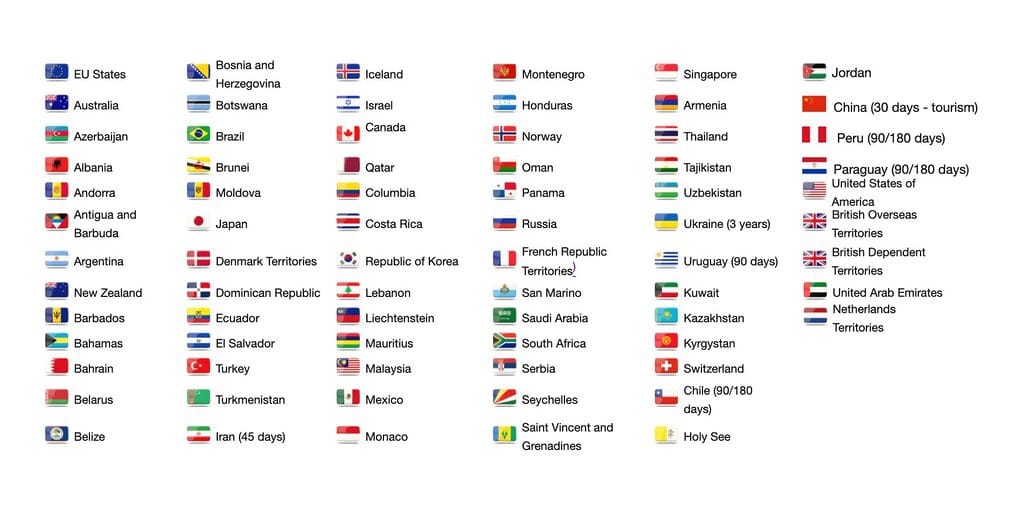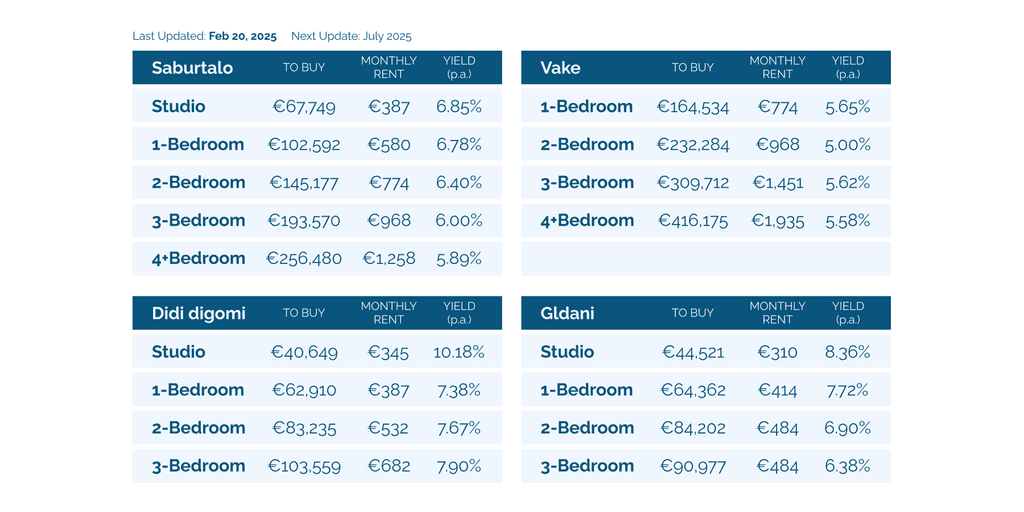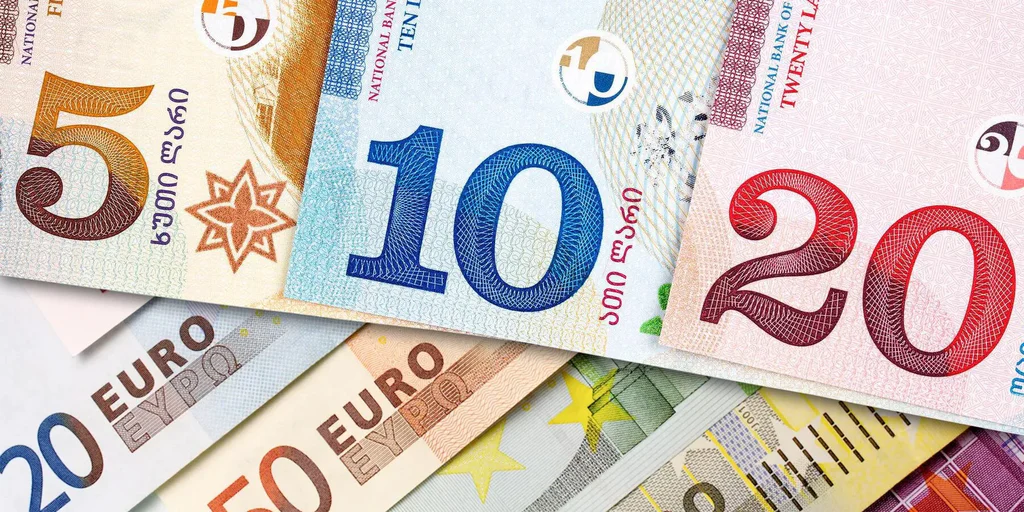The number of people working remotely is on the rise everywhere, especially among IT specialists and people employed in the creative industries. Just 10% of the work force six years ago, they now account for closer to 30%.
An obvious advantage of working from home is the freedom to live wherever you choose. In this article we’ll tell you why you might want to choose Georgia, compare the standard of living here with European destinations popular among digital nomads, and show you why Georgia is good option for those interested in Financial Independence, Retire Early (FIRE).
Visa-free entry for citizens of 98 countries
Depending on what kind of passport you have, you might find the door to Europe closed. And even if you meet the conditions for their digital nomad visa, you’ll still have plenty of paperwork to deal with.
Georgia is unique in this respect. GovAssist has it in the top 10 easiest countries for foreigners to enter, and it makes the top 50 in Henley’s openness ranking, ahead of most of Europe.
Georgia’s visa-free model allows for the citizens of almost 100 nations spanning the EU, North America, Middle East, Asia, and South America, as well as the territories of the former CIS to enter for up to one year (365 days). Citizens of Ukraine can stay for three years.
After a year, you literally just need to step across the border and can immediately re-enter, or you can apply for a residence permit in advance on the basis of marriage, investment, work, business, or study. The initial residence permit is issued for a period of six months to a year, with subsequent permits issued for longer periods of time.
At the crossroads of Europe and Asia, Georgia is well-located for access to almost anywhere in the world. There are three international airports in the country: in Tbilisi, Batumi, and Kutaisi and no lack of daily flights. In the summer tourist season of 2024, they processed 2.5 million passengers.

A strong economy and stable currency
The official currency of Georgia is the lari (GEL). Some rankings include it among the world’s most stable currencies, in such rarefied company as the New Zealand dollar, the Qatari riyal, and the UAE dirham. As of March 2025, one USD was worth GEL 2.78. According to the National Statistics Service, the country’s annual inflation rate in February 2025 was 2.4%.
Georgia has a free-market economy that respects property rights and the principle of free competition. Key industries have traditionally included agriculture, tourism, metallurgy, woodworking, and food processing, but in recent years the IT sector has made a splash, thanks in part to expats.
The European Bank for Reconstruction and Development places growth estimates for Georgia’s GDP at 9.5% for 2024 (and 7.8% for 2023), with officials like Prime Minister Irakli Kobakhidze predicting similar growth in 2025. The official forecasts coming in from regulators are a little more modest, with the National Bank of Georgia predicting 5%. Whatever the case, even the more conservative estimates exceed indicators for the Eurozone, which has recently emerged from recession, and GDP is expected to grow in 2025 by a measly 0.9%.
| City, country | Cost of living per person | Cost of living for a family of four | Minimum income to apply for a digital nomad visa |
| Tbilisi, Georgia | $1,016 | $2,436 | There are no requirements |
| Batumi, Georgia | $812 | $2,052 | There are no requirements |
| Nicosia, Cyprus | $1,302 | $3,166 | €3,500/month ($3,800) |
| Tallinn, Estonia | $1,414 | $3,341 | €4,500/month ($4,890) |
| Prague, Czech Republic | $1,513 | $3,601 | €2,415/month ($2,620) |
| Lisbon, Portugal | $1,705 | $3,820 | €3,480/month ($3,780) |
| Rome, Italy | $1,718 | $4,113 | €28,000/year ($30,420) |
| Madrid, Spain | $1,781 | $4,027 | €2,762/month ($3,000) |
| Berlin, Germany | $2,027 | $4,661 | From €9,000/year ($9,800) and the freelancer must have several clients in Germany |
| Oslo, Norway | $2,292 | $4,945 | €3,000/month ($3,260) |
| Amsterdam, Netherlands | $2,791 | $6,603 | There is no digital nomad visa |
| London, UK | $3,296 | $7,841 | There is no digital nomad visa |
It’s obvious: Georgia is super affordable. In Numbeo’s overall cost of living index, the country scores 30 points (New York scores 100, and the index reaches 66 in Europe).
Living Cost ranks Georgia 99th for prices and 72nd for quality of life (out of 197 countries). From here on we will be using the statistics from Living Cost.
Lower costs are associated with affordable housing, food, and transportation. As of the start of 2025, the average cost of living including rent per person in Tbilisi, the capital of Georgia, was about USD 1,000. In the country’s second most populous city, Batumi, it was about USD 800. In smaller cities like Rustavi and Kutaisi, you’re looking at USD 650. A family of four will need between USD 1,600 and USD 2,400.
Low rent
The average price of a 40 m² (430 ft²) one-bedroom apartment in Tbilisi ranges from USD 400 to 700 depending on the neighborhood. Two-room apartments of 80 m² (860 ft²) cost between USD 750 and 1,250, and in winter you’ll need to add up to USD 50 for utilities (much less in summer, to be sure).
Rent is considerably higher in Europe (as are electricity, water, and gas). Take one-bedroom apartments for comparison (thanks to Living Cost for the data):
- Berlin: USD 832 to 1,156
- Amsterdam: USD 1,536 to 1,920
- Lisbon: USD 933 to 1,223
- Rome: USD 701 to 1,049

Cheap gasoline
Gasoline costs an average of USD 1.14/liter. Euro Regular 92 is GEL 3.03/L (€1.043), Premium 95 GEL 3.20/L (€1.102). LPG costs GEL 1.80/L (€0.620). Most of the fuel comes from neighbors Turkey and Azerbaijan or Turkmenistan, Romania, or Bulgaria.
As one might expect, gas is more expensive in Europe (even in countries that export petroleum products to Georgia). According to globalpetrolprices.com:
- A liter of gasoline costs USD 1.42 in Bulgaria and USD 1.58 in Romania
- It’s around USD 1.82 in Portugal, Germany, and the UK
- And it’s closer to USD 2/L in the Netherlands, Greece, and Italy
Good food at great prices
Low food prices in Georgia are found not only in markets, but also in chain stores, where expats spend an average of USD 317 a month, considerably less than the average USD 500 per person in Europe.
For example, a carton of eggs costs just USD 2.30 in Georgia, a loaf of bread a measly fifty cents, cheese is USD 2.30/kg, bananas USD 1.50/kg, and seasonal produce is even cheaper, with a kilogram of potatoes setting you back a mere USD 0.60 in summer. An ordinary lunch in a Georgian cafe costs and average of USD 9.73, a cup of cappuccino USD 2.80, and dinner in a nice restaurant USD 34.50.
A traditional Georgian specialty is wine, produced here in huge quantities by factories and smaller winemakers alike. A bottle of homemade wine can be purchased for USD 2-4, with wine from the store setting you back USD 4-10.
Prices can be inflated on statistical websites, making it difficult to calculate the real cost. This is where the more objective Khachapuri (traditional 20-25 cm flatbread with cheese that can replace a full lunch or dinner) Index can come in handy. According to the benchmark, the average khachapuri cost just GEL 7 (USD 2.5) at the beginning of 2025

Low taxes for foreigners and businesses
Tax legislation is an important advantage. In general, individuals and legal entities pay income tax at a fixed rate of 20% regardless of citizenship. Progressive taxation is a thing in most European countries, with taxes climbing as high as 55% depending on income (in Spain, for example, the rate varies from 19% to 47%).
Only income earned inside Georgia is taxed in Georgia. You do not pay tax on income you earned outside the country – from renting out an apartment in your home country or from dividends, for example. There is a small catch, though: if you’re working for a foreign company and the money comes to you from abroad but you’re actually living here, it is considered income received from a source in Georgia.
You can legally reduce your tax burden by registering as an individual entrepreneur:
- If your annual income does not exceed GEL 30,000, get “micro-business” status and pay no income tax at all
- If you make between GEL 30,000 and 500,000, it’s “small business” status you want, and you’ll pay only 1% tax on turnover
- If your income exceeds GEL 500,000, the rate is 3%, but only on the part above the limit.
Income from trading cryptocurrency in Georgia is also not subject to taxes for individuals. There are many legal exchangers in the country that will help you quickly convert bitcoin and altcoins into lari, dollars, euros and other currencies.
And there are plenty of incentives for companies selling their goods and services outside Georgia:
- IT companies with virtual zone status are exempt from VAT, corporate income tax, customs tax, and excise duty, while dividends (if distributed) are taxed at 5%
- International IT companies pay only 5% on both dividends and corporate tax and are exempt from the rest
Companies registered in free industrial zones do not pay corporate tax at all (just 20% income tax on employee salaries)
A high quality of life without the red tape
The climate in Georgia is pleasant (between +30°C in summer and +10°C in winter), as are the locals, who are generally friendly to newcomers and often speak English and esteem European values. Educational and cultural programs promoting democracy, rights and freedoms, gender equality, and the rule of law abound alongside a continued adherence to tradition.
It was reported in February 2025 that Georgia plans to launch a citizenship for investment program that would allow the president to issue a “golden passport” for as low as USD 250,000, just further proof of the country’s openness to the rest of the world.
But it’s not just a question of low prices, taxes, and hospitality. Georgia can be really comfortable and unnecessary bureaucracy easily avoided – register a sole proprietorship here in a single working day, a company in not much more, and you don’t even need to be here in person to do it (the same is true for opening a bank account or buying real estate).
To learn more about the business opportunities Georgia offers, schedule a free consultation with PB Services or submit a request through the form below.
